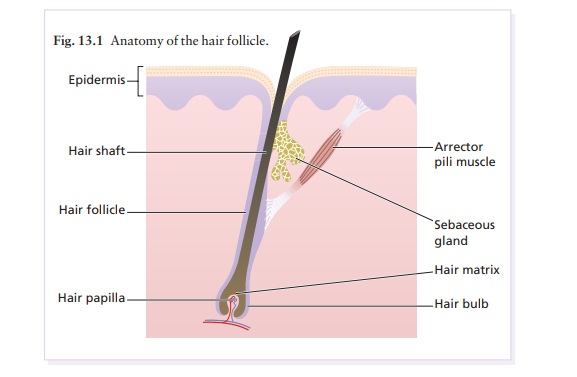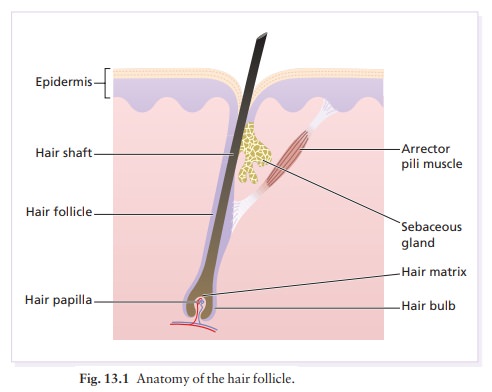Chapter: Clinical Dermatology: Regional dermatology
The hair

The hair
Hair
is human plumage: we need just the right amount, in the right places. The twin
torments of having too much or too little hair can be understood only when seen
against the background of the formation and activity of normal hair follicles.
Hair follicles form before the ninth week of fetal life when the hair germ, a solid cylinder of cells, grows obliquely down into the dermis. Here it is met by a cluster of mesenchymal cells (the placode) bulging into the lower part of the hair germ to form the hair papilla. Eventually the papilla contains blood vessels bringing nutrients to the hair matrix. The sebaceous gland is an outgrowth at the side of the hair germ, establishing early the two parts of the pilosebaceous unit. The hair matrix, the germinative part of the follicle, is equival-ent to the basal cells of the epidermis.
Melanocytes
migrate into the matrix and are respons-ible for the different colours of hair
(eumelanin, brown/ black; phaeomelanin and trichochromes, red). Grey or white
hair is caused by low pigment production, and the filling of the cells in the
hair medulla with minute air bubbles that reflect light.
The
structure of a typical hair follicle is shown in Fig. 13.1.

Related Topics